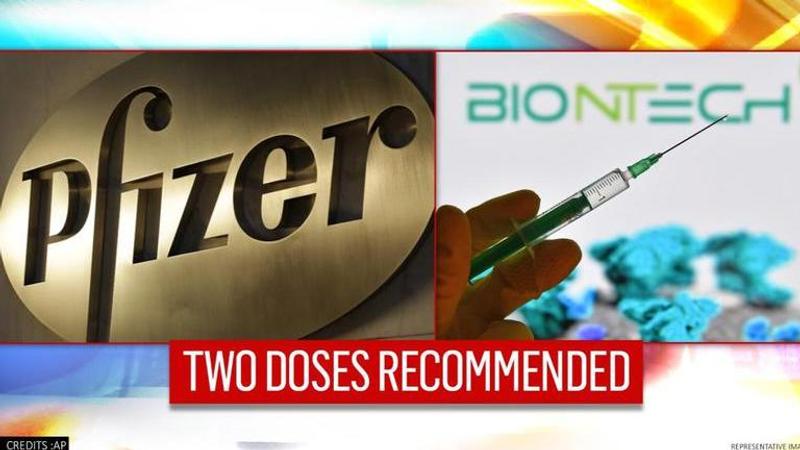Published 13:33 IST, January 6th 2021
COVID-19: WHO recommends two doses of Pfizer and BioNTech jabs within 21-28 days
Chairman of WHO's Strategic Advisory Group of Experts on Immunization recommended that the patients should take two doses Pfizer vaccine for coronavirus.

The patients affected by the novel coronavirus should take two doses of the Pfizer and BioNTech vaccine within a period of 21-28 days said WHO. Alejandro Cravioto, chairman of WHO's Strategic Advisory Group of Experts on Immunization (SAGE), recommended during a virtual briefing with the Director of WHO Tedros Adhanom. He also said that the group does not recommend vaccinations for travellers unless they come from a very high-risk group. “The urgency, ambition and resources with which #COVID19 vaccines have been developed must be matched by the same urgency, ambition and resources to distribute them fairly and to realise the power of vaccines for the most vulnerable people, everywhere in the world. #ACTogether”, read the tweet by Tedros.
Recent media briefing
In the first briefing of the year 2021, Tedros highlighted that the WHO is not only battling the coronavirus pandemic but various other diseases across the world. Tedros said that the work of WHO goes beyond emergencies as the organisation works to improve human health in all aspects, beginning from birth to old age. He said, “As shown in the past year, WHO is working night & day to accelerate science, provide solutions to challenges on the ground & build global solidarity”.
He also spoke about this month, which will be dedicated to cervical cancer awareness. He told that the WHO is working with partners around the world to accelerate the first global health strategy for the elimination of cancer. Speaking about last year, he said, “We’ve learned a lot in the last year; not least that health is an investment in overall development, critical for thriving economies and a key pillar of national security. Health cannot be an after-thought when we have an emergency”.
Pfizer and BioNTech issue statement
Recently, American pharmaceutical firm Pfizer and its German partner BioNTech have said that there is no data to suggest their COVID-19 vaccine will continue to generate an immune response if the second shot is delayed by more than 21 days. This comes after several countries have changed or are thinking to change their strategy of administering two-shot vaccines by giving the prime shot to as many people as they can before inoculating them with the booster shot. Even if it means a delay of more than three weeks between each jab.
Pfizer and BioNTech in a joint statement on Monday said that there is no evidence to suggest their COVID-19 vaccine will continue to protect against the virus if the second shot is administered later than the 21-day schedule tested during the trial studies. The companies said that they have only tried one dosing schedule during the trial of the vaccine, adding that most of the participants received the booster shot before the deadline of 21 days. Pfizer and BioNTech added that there is no data at the moment to prove recipients will sustain the antibodies if the second shot is delayed by more than 3 weeks.
(Image Credits: AP)
Updated 13:33 IST, January 6th 2021




